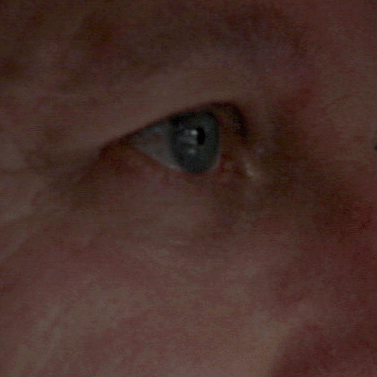The right distance
Preface for the book Cinq films de Nicolas Philibert published by the bureau du documentaire of the French Ministry of Foreign Affairs.
For Frédéric Labourasse
What has always struck me about Nicolas Philibert, when he recounts petty everyday goings-on and major world events, is his storyteller’s gift. He really addresses us - talks to us. And when he films, after colossal and at times solitary labours, I get the same impression of tender obviousness in the way he looks at things that he proposes – for these days he shoots and edits his own films. Whatever angle we look at them from, his films address each and every one of us with the disconcerting sensation of being a much-favoured onlooker, to whom he is devoted.
I started to work with Nicolas Philibert as an assistant before producing his films from 1988 on. Every time I see and re-see one of his films, I have the feeling of hearing this imaginary address to each one of his characters.
“I am looking at you in your special beauty, you are living with others and among yourselves, there is happiness, among you there is a man who precedes us and complements us”.
One day, Nicolas Philibert said that he didn’t make films “about” but films “with”.
In this statement, which is almost a profession of faith, there lurks the common point in the journeys that are being put forward to you today, that of a mountaineering adventure (Trilogy for One Man), the journey through a great museum (Louvre City), the journey through a rarely stumbled upon world (In the Land of the Deaf), the journey through a mythical place (Animals), the journey through a psychiatric clinic (Every Little Thing), through a single class (To Be and to Have) and the rural world (Back to Normandy).
Every time, I sense that three statements are joining forces in a stunning revelation. The statement about the pre-existence of the other – not a scaled-down object, beholden to the director’s eye, but a one-off, autonomous entity whose beauty is revealed by the “right distance” between filmer and filmed, that famous right distance. In a gesture akin to that of the philosopher Levinas, Nicolas Philibert accepts it, reveals it and hallows it, through the freshness of a first glance cast over the other.
This celebration of the “face” contains and defines the nature of the ethical relationship that unites this man to his fellow man and, through him, each man to his fellow man in an act of far-reaching awareness of the responsibilities incumbent upon the person filming. The other person exists prior to the encounter and what is filmed is, precisely, that encounter. He never takes possession of the other, something that frequently happens in documentary film where the other is merely a projection of the director serving the ideas expressed. Relationships lie at the heart of Nicolas Philibert's cinema. He films relationships.
This, for example, is what makes Sylviane and Christophe in Trilogy for One Man the protagonists of an exploit experienced within a couple's relationship, what turns the little painter in Louvre City into the character of a tender comedy, what turns every little thing in Every Little Thing into an adventure, each fate in In the Land of the Deaf into an epic saga experienced through the lucid eye of the person who likes what he sees and in it grasps the power of the narrative, what makes the collective adventure of the class in To Be and to Have a hymn to living together and finally what makes the human and cinematic story of Back to Normandy a celebration of a dual filiation.
And invariably, over and above the affirmation of the individual, and his incorporation in a collective which is on the move, and evolving, a utopia revisited, image of a possible world where, each time, the attentiveness to the other lies at the root of the relationship. Often, a group trying to live together (In the Land of the Deaf, To Be and to Have , Who Knows?), a community of work or life (Louvre City, Animals, Every Little Thing) or a common past (Back to Normandy). The world that Nicolas Philibert films is not only the world as it is but also and above all as he would like it to be - the world that he would like to live in. If one of us were to arrive at La Borde, he would never see the same thing as in Every Little Thing, since the film shows La Borde transformed by Nicolas Philibert's gaze and so becomes eminently liveable. His films always show a world where it is good to live. There is often a about his work that some people don't find hard enough, or too off-key in relation to reality but, in fact, Nicolas Philibert never deals with reality as a social or political description. His is a political form of cinema through the filter of a genuine vision of the world that he redesigns as a utopian project. Deep down, he isn't a particularly optimistic person but, in his films, he manages to find reasons to be optimistic in this world and to pass them on to us.
And then there is often a father or a master figure, never very faraway, Jean-Claude Poulain in In the Land of the Deaf, René Allio in Animals, Jean Oury in Every Little Thing. And, of course, René Allio again and Philibert's own father in Back to Normandy).
When the eye doesn’t cheat, it includes us in its construction of a world that is living, liveable, and deeply moral.

